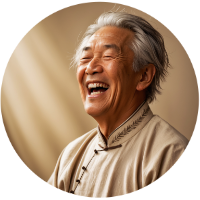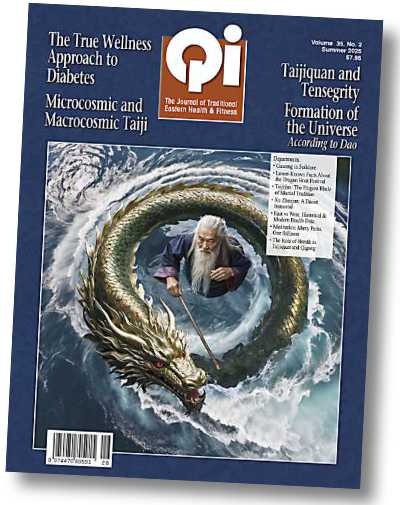Walking After Meals:
The Hundred-Step Tradition
In Chinese culture, there is an old saying: "Fan hou bai bu zou, huo dao jiu shi jiu"—“Walk a hundred steps after each meal and live to 99.” This folk wisdom is more than a poetic turn of phrase. It reflects a deep-rooted belief in the value of gentle, regular movement as a way to support digestion, circulation, and longevity.
 According to traditional Chinese medicine, the Spleen and Stomach are central to the body’s ability to transform food into Qi and Blood. After eating, the body directs its energy inward to process the meal. Intense activity can disrupt this process, but a calm stroll—especially in open air—can help the flow of digestive Qi, prevent stagnation, and even lighten the mood.
According to traditional Chinese medicine, the Spleen and Stomach are central to the body’s ability to transform food into Qi and Blood. After eating, the body directs its energy inward to process the meal. Intense activity can disrupt this process, but a calm stroll—especially in open air—can help the flow of digestive Qi, prevent stagnation, and even lighten the mood.
This tradition is often associated with elders slowly pacing around courtyards or gardens after meals. While a hundred steps is not a precise prescription, the number evokes modesty and balance. It’s a reminder that more is not always better. A short walk of five to ten minutes, ideally within 15–30 minutes of eating, is enough to stimulate the body without overexerting it.
Modern science supports this practice. Recent studies have shown that taking a short, low-intensity walk after meals can significantly reduce postprandial blood glucose spikes—particularly important for individuals with insulin resistance or type 2 diabetes. Even walking as little as two to five minutes can help muscles absorb glucose more efficiently, reducing the burden on the pancreas.
In addition, light movement stimulates peristalsis, the gentle wave-like contractions of the digestive tract, which helps prevent bloating, gas, and sluggish digestion. Unlike high-intensity workouts, which may divert blood away from the stomach or cause digestive upset, gentle walking keeps the body in a parasympathetic, or “rest and digest,” state. This supports nervous system regulation and can also help reduce stress levels after a meal, promoting emotional calm as well as physical ease. Taken together, these findings affirm what traditional Chinese wisdom has long maintained: a few mindful steps after eating can benefit both body and mind in quiet but powerful ways.
For those new to the habit, it’s helpful to keep it simple: walk slowly, breathe through the nose, and enjoy your surroundings. In doing so, you carry forward a tradition that values moderation, mindfulness, and harmony between daily life and bodily rhythm.
The hundred-step walk may seem humble, but like many Chinese health customs, its strength lies in quiet consistency.
Vocabulary Guide
- Qi (气 qì) – Vital energy circulating through the body and organs.
- Spleen (脾 pí) – In TCM, responsible for transforming food into qi and blood; paired with the stomach.
- Stomach (胃 wèi) – The organ that receives and breaks down food, working with the spleen to distribute nutrients.
- Stagnation (气滞 qì zhì) – A blockage or sluggishness in the flow of qi, often resulting in discomfort or poor digestion.









